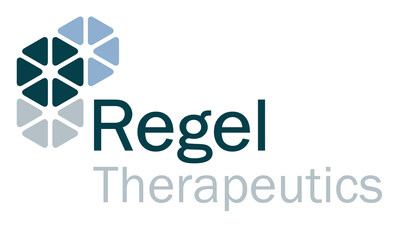Landmark UCSF Study Demonstrates Functional Rescue of SCN2A Loss of Function, Underscoring the Potential of Regel Therapeutics' Targeted EpiEditing Platform.
CAMBRIDGE, Mass. and SAN FRANCISCO, Sept. 17, 2025 /PRNewswire/ -- The laboratories of Dr. Kevin Bender and Dr. Nadav Ahituv at the University of California, San Francisco, today announced the publication of preclinical proof-of-concept data demonstrating that CRISPR activation restores SCN2A expression and ameliorates disease-related phenotypes in mouse and human models of SCN2A-haploinsufficiency. The study, published today in Nature, represents a major advance for the treatment of SCN2A-haploinsufficiency, one of the most common genetic causes of neurodevelopmental disorders and early-onset epilepsy.
In the study, the UCSF team demonstrated that restoring healthy levels of SCN2A expression through CRISPR activation, even in late development, could reverse several disease-relevant deficits present in mouse and human models of SCN2A-haploinsufficiency. These findings highlight the therapeutic promise of Regel's targeted EpiEditing platform, which uses the same underlying modality of CRISPR activation employed by the team at UCSF. Regel's EpiEditing technology enables durable, cell-specific upregulation of gene expression without altering the underlying DNA sequence, providing a platform to translate this breakthrough by the UCSF team into the clinic.
"One of the most exciting aspects of this work is that we observed improvements even when SCN2A expression was restored late in development," said Dr. Kevin Bender, Professor of Neurology at UCSF and senior co-author of the study. "This gives me hope that we may be able to help not just the infants that are newly diagnosed with an SCN2A disorder, but also those kiddos that I've watched grow up with SCN2A for the past decade."
"This groundbreaking work gives real hope to families like mine who live with the daily challenges of SCN2A-related disorders," said Leah Schust Myers, Founder & Executive Director of the FamilieSCN2A Foundation. "As a mom to a 15-year-old child with this disorder, I am deeply moved by the possibility that CRISPR could boost the healthy copy of the SCN2A gene and open doors to treatments once thought out of reach—even for older children. For our community, it provides the hope we need to carry on another day in this battle. It's an incredible step forward."
"This study represents the culmination of years of effort by a dedicated team across multiple laboratories" said Perry Spratt, Program Director at Regel Therapeutics and lead co-author on the publication. "It has been a privilege to contribute to this important work, and I am proud to now be part of the team at Regel focused on translating these advances to patients".
"We are incredibly excited by the publication of this new data by the team at UCSF," said Dr. Stephen Farr, Chief Executive Officer of Regel Therapeutics. "These findings reinforce our conviction that targeted epigenetic editing can safely and effectively restore gene function in the central nervous system. We are now preparing to translate this work into the clinic."
"This study showcases the potential of this technology to treat a wide range of haploinsufficient disorders," said Dr. Nadav Ahituv, Professor in the Department of Bioengineering and Therapeutic Sciences, Director of the Institute for Human Genetics at UCSF and senior co-author of the study.
Regel Therapeutics has licensed UCSF's CRISPRa technology to treat patients with haploinsufficiency disorders, including patients suffering from SCN2A loss of function. Perry Spratt contributed to the study as lead co-author while at UCSF. Dr. Ahituv is a co-founder of Regel Therapeutics. Both Dr. Ahituv and Dr. Bender serve on Regel Therapeutics' Scientific Advisory Board.
About SCN2A Haploinsufficiency
SCN2A haploinsufficiency is a leading monogenic cause of neurodevelopmental disorders and early-onset epilepsy. Mutations that reduce expression of the SCN2A gene impair neuronal excitability which strongly affects brain function. There are currently no approved therapies that target the root cause of this disorder.
About Regel Therapeutics
Regel Therapeutics is pioneering a new class of precision therapies through its Targeted EpiEditing platform, designed to restore normal gene expression exclusively in the cells affected by disease. The platform delivers a deactivated Cas9 system under the control of proprietary cell-specific promoters, enabling durable rescue of gene expression with minimal off-target effects. Regel's lead programs focus on severe pediatric CNS disorders, including Dravet Syndrome and SCN2A haploinsufficiency. The company is headquartered in Cambridge, MA. For more information, visit www.regeltherapeutics.com.
![]() View original content to download multimedia:https://www.prnewswire.com/news-releases/landmark-ucsf-study-demonstrates-functional-rescue-of-scn2a-loss-of-function-underscoring-the-potential-of-regel-therapeutics-targeted-epiediting-platform-302558265.html
View original content to download multimedia:https://www.prnewswire.com/news-releases/landmark-ucsf-study-demonstrates-functional-rescue-of-scn2a-loss-of-function-underscoring-the-potential-of-regel-therapeutics-targeted-epiediting-platform-302558265.html
SOURCE Regel Therapeutics Inc.


